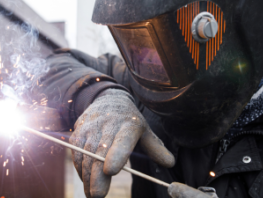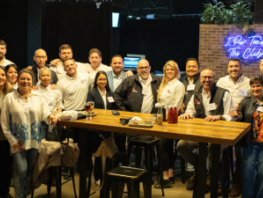Painting is in Dave Scaturro’s blood. As sales and marketing director of New Jersey-based Alpine Painting and Sandblasting Contractors, he helps carry a tradition started by his elders in 1975. “One thing we try to do is harness the knowledge and experience my dad and uncle have developed and put it into a system and a process,” he says. “We didn’t want that to be lost. In the short-term, the first generation will be able to retire, but all their experience and knowledge won’t be lost.” Two of Scaturro’s brothers, along with a cousin and uncle, are also torch-bearers of the family business. Despite a housing downturn that continues to leave many able contractors grasping for work, Alpine has held steady. Scaturro attributes this success to the company’s time-hardened competitive edge. “We enjoy a relaxed environment that’s fun loving, but we keep it fine-tuned to the numbers.” DECO spoke to the second-generation craftsman, who also serves as president of the North Jersey PDCA, about the nuts and bolts of competition.
DECO: What accounts for Alpine’s success during the devastating downturn?
Dave Scaturro: I would say what makes us a little different is the fact that we’re not set up like your average painting company. We’re more of a corporation. We have systems and processes. We live and die by our organization chart, weekly meetings, reports, forms, etc. We’re very financially oriented. Our sales team has specific numbers to reach. Overall, we have very clear goals and everyone knows the path they need to take.
DECO: How is the company structured?
Scaturro: We have about 25 people in the office, and 100 painters, some of whom are subcontractors, in the field. In office, we have teams in project management, sales, customer service, and accounting. Our subcontracting process is rigorous. We have training and orientation, and check certificates and references, just like if we we were hiring a full-time employee. If we have a job in the public sector, we make sure they’re certified to work in the public sector. We do a very good job as far as communicating expectations. There are always little issues, more with subcontractors than full-time employees. There are more layers to look at, things that may get lost in translation. Overall, I think we have a good chain of command. On every one our jobs, we have project managers. We have forms and everyone gets a copy of all the paperwork, so there’s no confusion on expectations, personnel, and safety. It’s about communication.
DECO: When did you and your brothers enter the family business?
Scaturro: I’ve been doing this almost my whole life, starting at 14 years old, painting for my father during the summers. I learned how to run crews, as well as the craft and art of painting. Even how to sell and make cold calls. My brothers and I were fortunate enough to all go to college, and are able to bring that knowledge. One of my brothers handles operations, another handles industrial sales and project management. I handle commercial resources. Each of us knows we’re responsible for our own departments.
DECO: Despite your steady growth, Alpine couldn’t have been completely insulated from the fallout – the credit crunch, halted construction, etc.
Scaturro: True, it’s not all butterflies and cupcakes. It’s definitely been harder these past couple years. So, we cut expenses, cut back in many areas to a degree. But in marketing, we’ve invested more money to build a stronger presence. That, in turn, has led to deeper returns. Most of our customers recognize and demand the exact same thing; they want us to sharpen our pencil, to be more competitive. At this point, we’re not going to take a job unless it makes us money. I don’t go for the carrot trick.
DECO: If not carrots, what can you hold out to keep business thriving?
Scaturro: Service, service, service. Without question, before during and after a project, we really try to serve our customers as best as we can. I’m not the cheapest contractor out there, but we’re going to give the best service. That’s really what we work hard at – not just delivering a good paint job, but also building good relationships. In practice, we try to hit this on many levels, from something as personal as taking a client out to lunch.
Another vital characteristic is our diversity. When the housing market crashed, when things weren’t being built, when general contracting was sluggish, people going after one market suffered. We try to be extremely diverse. As a
commercial painter, I don’t just go after office buildings; I go after warehouses, retail stores, manufacturing plants, hospitals, schools. We target lots of different sectors through email marketing and cold calling. We have salespeople dedicated to individual markets, which gives us an advantage. When new construction is slow, something else is picking up










